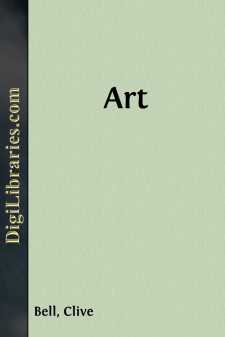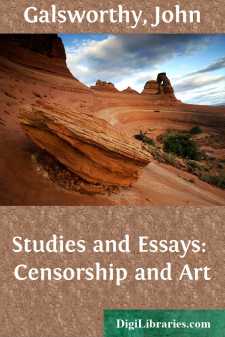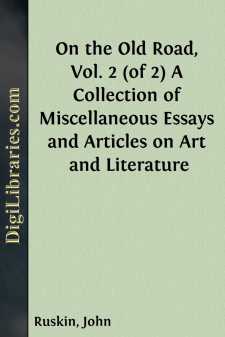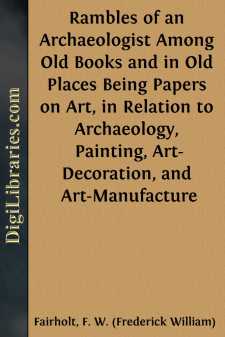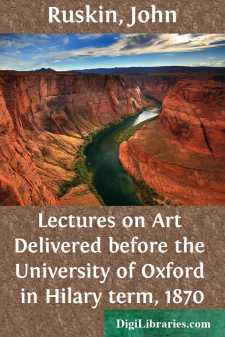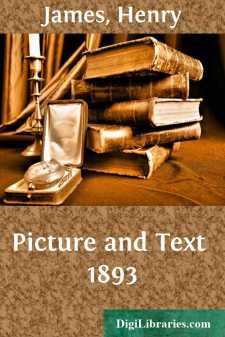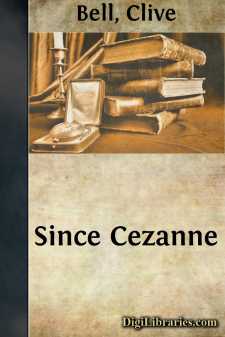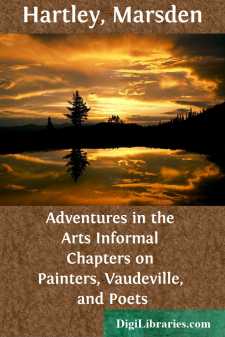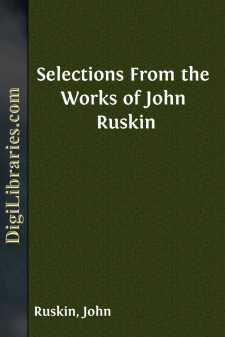Art
- African 1
- Asian 2
- Collecting 1
- Collections, Catalogs, Exhibitions 6
- Criticism 2
- European 8
- General
- History 11
- Middle Eastern 1
- Sculpture 4
General Books
Sort by:
by:
Taha Atef
Are you ready to unleash your voice and build a podcast empire? "How to Make a Podcast with 1 Million Subscribers" is your ultimate roadmap to podcasting success. Whether you're a complete novice or have dabbled in audio content before, this comprehensive guide will take you from zero to podcast hero. Inside these pages, you'll discover: A foolproof, step by step process to launch your...
more...
by:
Clive Bell
I THE AESTHETIC HYPOTHESIS It is improbable that more nonsense has been written about aesthetics than about anything else: the literature of the subject is not large enough for that. It is certain, however, that about no subject with which I am acquainted has so little been said that is at all to the purpose. The explanation is discoverable. He who would elaborate a plausible theory of aesthetics must...
more...
by:
John Galsworthy
ABOUT CENSORSHIP Since, time and again, it has been proved, in this country of free institutions, that the great majority of our fellow-countrymen consider the only Censorship that now obtains amongst us, namely the Censorship of Plays, a bulwark for the preservation of their comfort and sensibility against the spiritual researches and speculations of bolder and too active spirits—it has become time...
more...
by:
John Ruskin
THE NATIONAL GALLERY SITE COMMISSION. Evidence of John Ruskin, Monday, April 6, 1857. 114. Chairman. Has your attention been turned to the desirableness of uniting sculpture with painting under the same roof?—Yes. What is your opinion on the subject?—I think it almost essential that they should be united, if a National Gallery is to be of service in teaching the course of art. Sculpture of all...
more...
CHAPTER I. Long after the extinction of the practical art-power evolved from the master-minds of Greece and Rome, though rudely shattered by the northern tribes, it failed not to enforce from them an admission of its grandeur. Loving, as all rude nations do, so much of art as goes to the adornment of life, they also felt that there was a still higher aim in the enlarged spirit of classic invention. It...
more...
by:
John Ruskin
PREFACE TO THE EDITION OF 1887. The following lectures were the most important piece of my literary work done with unabated power, best motive, and happiest concurrence of circumstance. They were written and delivered while my mother yet lived, and had vividest sympathy in all I was attempting;—while also my friends put unbroken trust in me, and the course of study I had followed seemed to fit me for...
more...
by:
Henry James
BLACK AND WHITE If there be nothing new under the sun there are some things a good deal less old than others. The illustration of books, and even more of magazines, may be said to have been born in our time, so far as variety and abundance are the signs of it; or born, at any rate, the comprehensive, ingenious, sympathetic spirit in which we conceive and practise it. If the centuries are ever arraigned...
more...
by:
Clive Bell
SINCE CÉZANNE With anyone who concludes that this preliminary essay is merely to justify the rather appetizing title of my book I shall be at no pains to quarrel. If privately I think it does more, publicly I shall not avow it. Historically and critically, I admit, the thing is as slight as a sketch contained in five-and-thirty pages must be, and certainly it adds nothing to what I have said, in the...
more...
by:
Marsden Hartley
Perhaps the most important part of Criticism is the fact that it presents to the creator a problem which is never solved. Criticism is to him a perpetual Presence: or perhaps a ghost which he will not succeed in laying. If he could satisfy his mind that Criticism was a certain thing: a good thing or a bad, a proper presence or an irrelevant, he could psychologically dispose of it. But he can not. For...
more...
by:
John Ruskin
Introduction Two conflicting tendencies in Ruskin. It is distinctive of the nineteenth century that in its passion for criticising everything in heaven and earth it by no means spared to criticise itself. Alike in Carlyle's fulminations against its insincerity, in Arnold's nice ridicule of Philistinism, and in Ruskin's repudiation of everything modern, we detect that fine dissatisfaction...
more...



